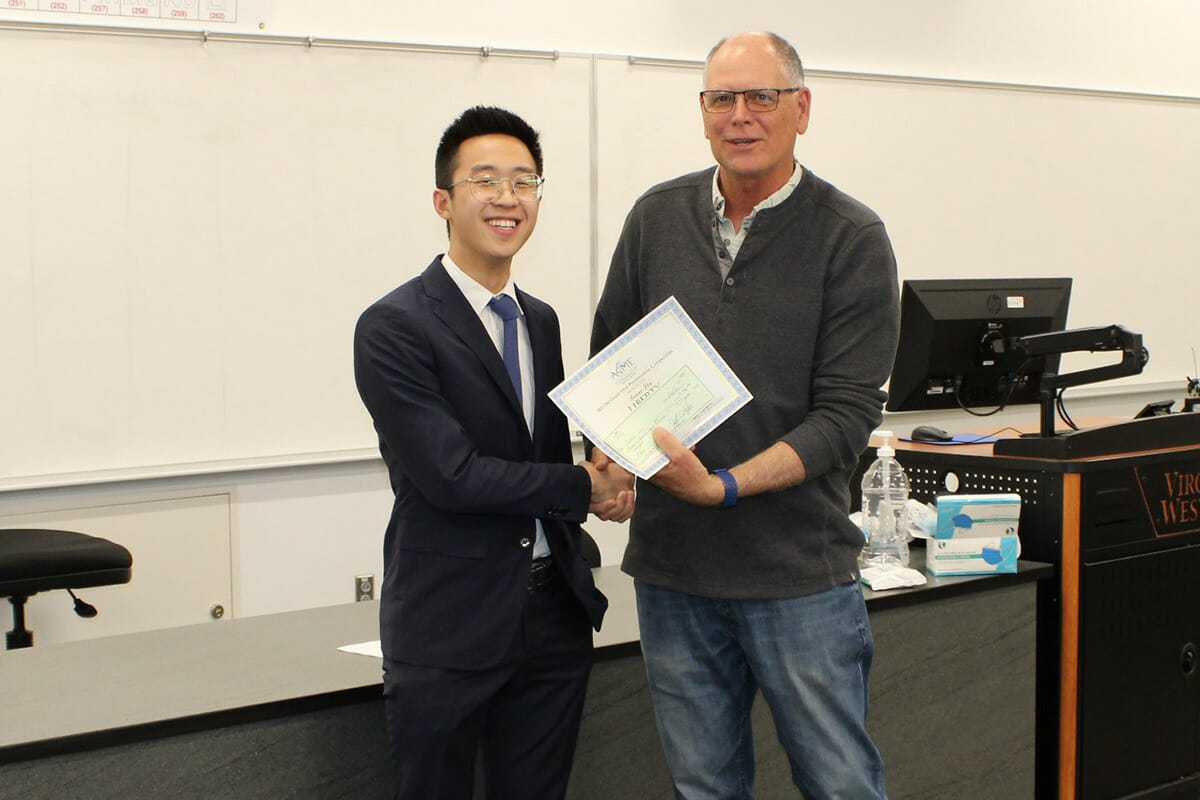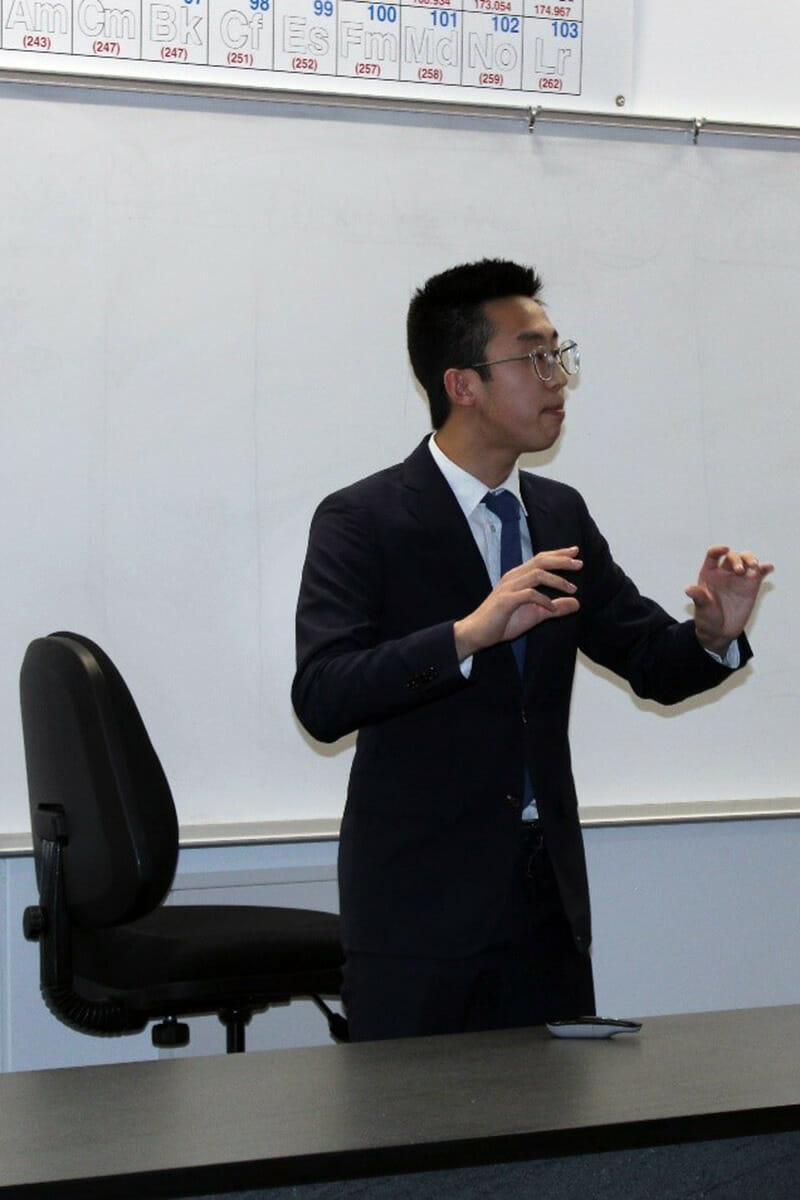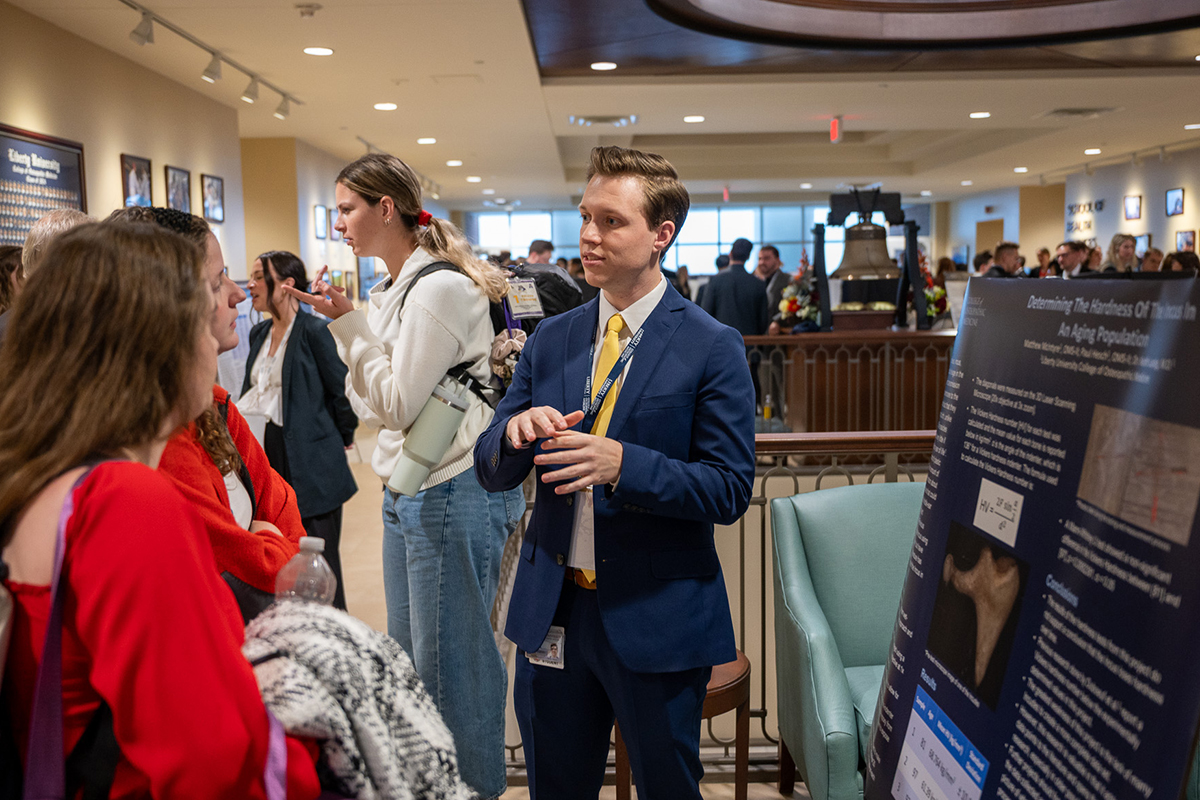Mechanical engineering student wins ASME contest for presentation on small-scale hydropower project
April 19, 2022 : By Ted Allen - Office of Communications & Public Engagement

Liberty University senior mechanical engineering student Isaac Liu won the Virginia Section of the American Society of Mechanical Engineers (ASME) Old Guard Oral Presentation Competition March 15 at Virginia Western Community College in Roanoke. His presentation centered on the use of dielectric elastomer materials as energy generators from natural streams or waves of water.
As a finalist, Liu has been invited to compete at the Society level competition at the International Mechanical Engineering Congress & Exposition (IMECE) in November.
The competition is designed to emphasize the value of communicating clear, concise, and effective presentations on engineering projects. Each presentation lasts 15 minutes and is followed by a five-minute question-and-answer session.
The basis for Liu’s presentation was a project that generates small-scale energy for off-grid purposes from low-velocity water sources, like the James River, which runs through Lynchburg.
“Energy use is increasing, and we want to harvest energy from all sorts of sources,” Liu said.
“Typically, when you do that (with water), you need to build a dam and it’s very expensive, with a high environmental impact.”
Liu has worked with dielectric elastomer technology in Liberty’s TRACER labs, directed by Dr. Hector Medina. He said the technology is relatively novel and still being studied.

“It’s not really been introduced in the market,” Liu said. “There’s been quite a bit of research on it and there was one other paper on it published in 2017 and I am building upon that, trying to improve their design.”
A dielectric elastomer is a flexible capacitor equipped with compliant electrodes on either side.
“When you put a charge on it, and apply voltage difference, the positive charges accumulate on one end and the negative charges accumulate on the other and because it is flexible, you can increase or decrease the spacing between those charges and that affects the amount of potential energy on the dielectric elastomer generator,” Liu said. “Opposites attract, and when you separate them, so that’s potential energy, which can be removed and used.”
He said other previous projects at Liberty’s TRACER labs have involved a dielectric elastomer actuator, which uses electrical energy to create a physical movement, similar to how muscles work.
“I’ve been trying to do the opposite, where you apply movement and you get energy out of it.”
Liu developed his oral communication skills on the Liberty Debate team as a freshman and sophomore.
“One thing that’s very important in debate, and also in any form of communication, is telling people why it matters,” he said. “It’s good to present to other engineers and to learn how to communicate to people who are not experts within your field. You can communicate something very well, but if you can’t explain its impact, it doesn’t resonate as much.”
Liu’s future plans include graduate school, possibly earning a Ph.D., and eventually conducting research in a laboratory. He said he has enjoyed his undergraduate research opportunities at Liberty and working alongside professors such as Dr. Medina, his mentor.
“I spent hours in his office when I was taking material sciences with him, and it gave me a really good understanding,” Liu said. “It is a really unique experience being able to get that research and one-on-one mentoring from professors … while still having the resources to do research.”


